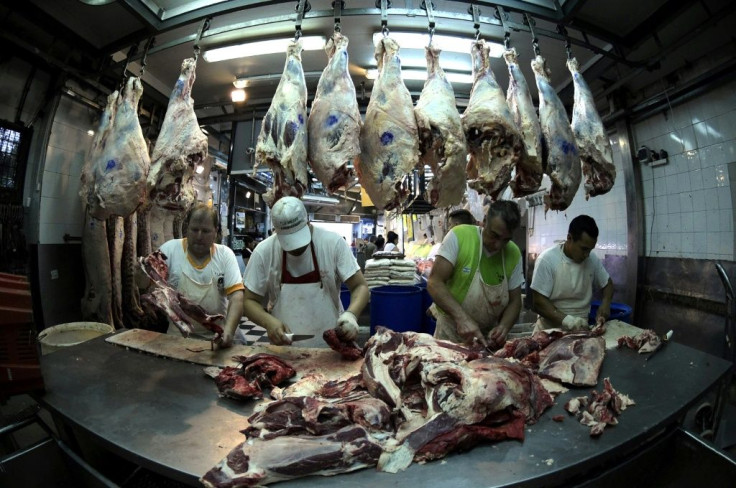Argentine Meat Producers Announce Strike Over Exports Ban
Argentine meat producers announced on Tuesday they would stop selling beef and veal for one week in response to a month-long government suspension on exports due to rising prices.
The Liaison Commission for Agricultural Entities, which represents agricultural producers and businesses, declared a "cessation of all categories of cattle trade" from Thursday to May 28.
On Monday night, the government announced a suspension on foreign meat sales to "get the sector in order, restrict speculative practices and avoid tax evasion in foreign trade."
Earlier on Tuesday, President Alberto Fernandez insisted that Argentina could not accept the recent rise in meat prices in a country already reeling from three years of recession and the adverse economic impact of the coronavirus pandemic.
"The meat issue has got out of hand. The price is rising every month without justification. We need to get it under control," Fernandez told Radio 10.
The government took the decision due to the strong impact that price rises have on Argentina's inflation, already one of the highest in the world and which increased by 17.6 percent during the first four months of the year, according to the INDEC statistics institute.
The cost of living has soared 46.3 percent in the last 12 months but beef prices in April were 65.3 percent higher than the same month in 2020, the Argentine Institute of Beef Promotion (IPCVA) said.
Argentines ate 38 kilograms (84 pounds) of beef and veal per head in 2019 -- the most among Organisation for Economic Cooperation and Development countries (OECD), and about 12 kilograms per head more than the United States.
Argentina is also the fourth largest exporter of beef in the world, the revenues from which are vital to the country's economy.
In 2020, Argentina exported $3.37 billion worth of beef and cow leather -- a 16.5 percent drop compared with 2019 -- primarily to China, Germany and Israel, according to INDEC.
But poverty affects 42 percent of Argentines, and Fernandez is trying to reduce the cost of living by implementing price controls through agreements with business sectors.
Meat processing plants offer certain cuts of meat at reduced prices but Fernandez said it's "a crumb of 8,000 tons of meat when here we eat 200,000 tons a month."

Miguel Schiaritti, president of the Argentine chamber of industry and commerce for meat and its derivatives -- which puts the country's per capita beef consumption at 49.2 kilograms -- blasted the government's move.
"The measure is absolutely harmful for Argentina. It's not possible to make a sector that employs more than 100,000 people responsible for inflation," Schiaritti told AFP.
He said a previous restriction on meat exports imposed initially for six months in 2006 during the presidency of Nestor Kirchner lasted 10 years.
"We know this generated the loss of 12.5 million head (of cattle), 19,000 jobs were lost and 150 factories closed, of which only 70 reopened," he added.
The backlash from meat producers was swift.
"The decision is destroying Argentina's image as a reliable provider and we'll go back to handing the markets to our main competitors," said rancher Daniel Peregrina, president of the Rural Society, in a press conference.
Patricia Krause, an economist for Latin America at French credit insurer Coface, told AFP that "Brazil could benefit due to its competitive prices."
It's not the first time the agriculture industry has gone on strike in protest at government measures.
A four-month strike was organized in 2008 when then-president Cristina Kirchner, currently the vice president, announced a plan to raise taxes on exports.
The tension eased when the initiative was eventually rejected by Congress.
"Let's hope that the crisis doesn't deepen like in 2008, we don't want to it to escalate but we're going to defend the industry's interests," said Jorge Chemes from the Argentine Rural Confederations.
© Copyright AFP 2024. All rights reserved.





















